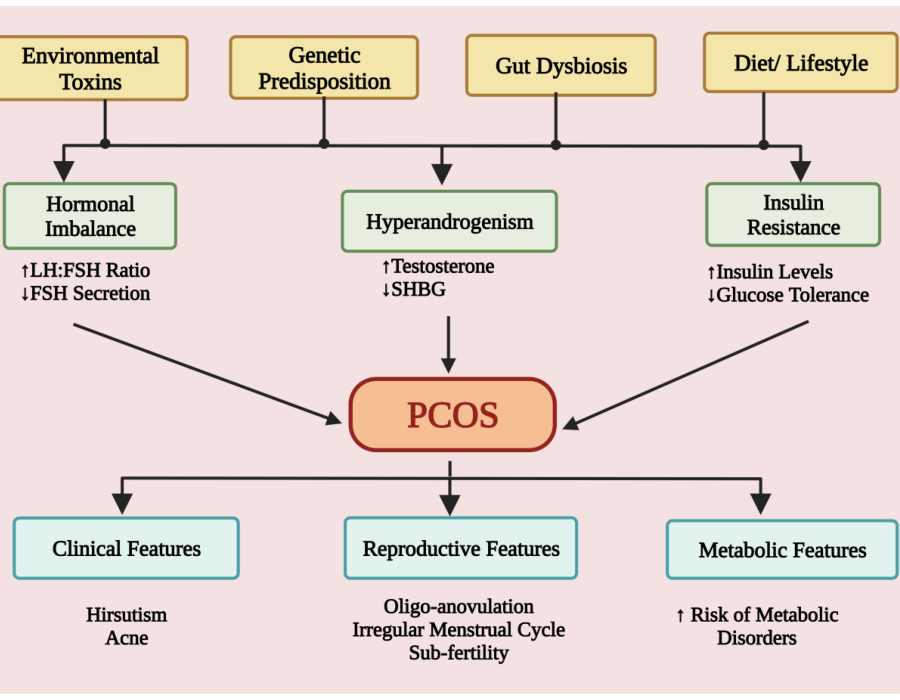Managing PCOS (Polycystic Ovary Syndrome) and PCOD (Polycystic Ovary Disorder) typically involves a combination of lifestyle modifications, medications, and other interventions aimed at addressing specific symptoms and underlying hormonal imbalances. Here are some treatment options commonly used for managing PCOS and PCOD:
1. Lifestyle Modifications:
- Healthy Diet: Adopting a balanced diet rich in fruits, vegetables, whole grains, lean proteins, and healthy fats can help manage weight and improve insulin sensitivity. Limiting processed foods, sugary snacks, and refined carbohydrates may also be beneficial.
- Regular Exercise: Engaging in regular physical activity, such as aerobic exercise, strength training, or yoga, can help improve insulin sensitivity, promote weight loss or maintenance, and reduce symptoms of PCOS and PCOD.
- Weight Management: Achieving and maintaining a healthy weight can help regulate menstrual cycles, improve fertility, and reduce the risk of complications associated with PCOS and PCOD.
2. Medications:
- Birth Control Pills: Oral contraceptives containing estrogen and progestin can help regulate menstrual cycles, reduce androgen levels, and improve symptoms such as acne and hirsutism.
- Anti-androgen Medications: Medications such as spironolactone may be prescribed to help reduce symptoms of hirsutism, acne, and male-pattern baldness by blocking the effects of androgens.
- Metformin: Metformin, a medication commonly used to treat type 2 diabetes, may be prescribed to improve insulin sensitivity and regulate menstrual cycles in women with PCOS, particularly those who have insulin resistance or are overweight.
- Ovulation Induction: For women trying to conceive, medications such as clomiphene citrate or letrozole may be prescribed to induce ovulation and improve fertility.
3. Other Interventions:
- Fertility Treatments: In cases of infertility, assisted reproductive technologies such as in vitro fertilization (IVF) or intrauterine insemination (IUI) may be recommended.
- Surgery: In rare cases where other treatments have been unsuccessful, surgery may be considered to address specific issues such as ovarian cysts or to restore fertility.
4. Symptom-specific Treatments:
- Acne Treatments: Topical or oral medications may be prescribed to help manage acne symptoms.
- Hirsutism Treatment: Hair removal methods such as shaving, waxing, laser hair removal, or electrolysis may be used to manage excess hair growth.
- Hair Loss Treatments: Medications or treatments such as minoxidil (Rogaine) or hair transplantation may be recommended to address hair loss or thinning.
5. Psychological Support:
- Counseling or Support Groups: Dealing with the physical and emotional challenges of PCOS and PCOD can be difficult. Counseling or participating in support groups can provide emotional support and coping strategies.
It's important for women with PCOS or PCOD to work closely with their healthcare providers to develop a personalized treatment plan tailored to their specific needs and goals. Regular monitoring and follow-up appointments are essential to assess progress, adjust treatment as needed, and address any new or ongoing concerns.




.png)

Comments